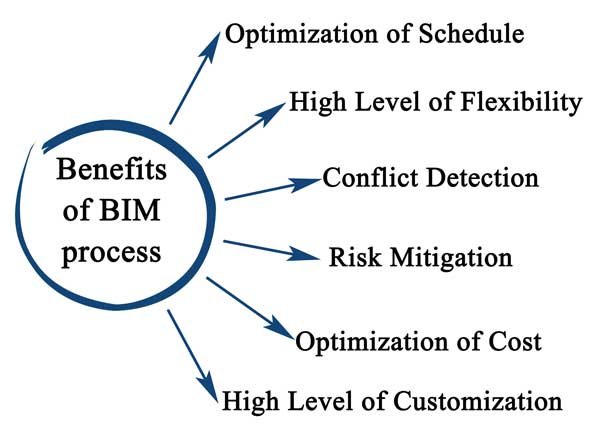BIM Coordination Services for Clash-Free Construction Projects
THE BENEFITS OF HIRING A BIM COORDINATOR
As building models and the software programs that are used to support and create them become more sophisticated, you need a central figure to manage the resulting data, model components, and project information. In fact, this person is crucial to the success of a construction project and the building’s subsequent operation. Effective inter-disciplinary cooperation drives project success, and this is where the BIM Coordinator comes in.
WHAT IS A BIM COORDINATOR?
Engineers, architects, contractors and subs, project managers, financial planners/controllers, and project owner(s) are just a few of the parties that collaborate throughout the process. These members all depend on receiving accurate information from one another. And, as projects increase in size and complexity, ensuring accurate communication becomes paramount to prevent costly errors and delays.
A successful BIM Coordinator has a high level of competency with BIM tools (CAD, Revit, and project/construction management software). He or she also has hands-on experience in design and construction. For example, MLP Consulting’s background includes:
Electrical systems
HVAC systems
Plumbing systems
Plumbing codes, clearances, and restrictions
Our hands-on background allows MLP to help all trades involved in a project.
Simply having sophisticated BIM tools is not enough. You need a qualified individual to facilitate communication between disciplines and trades. This allows project teams to focus on their respective tasks instead of the documentation of other disciplines. Over time, the BIM Coordinator educates each project contributor, both to increase their competency with the relevant tools and to understand how their discipline or trade impacts the rest of the design. This gives each contributor a greater understanding of how their respective part of the project contributes to and affects the entire design, allowing each member to contribute at a higher level. Each individual’s role expands, as does their ability to communicate with and understand the other disciplines. Although the most prominent benefits of hiring a BIM Coordinator are the management and communication of project information, this person should also be able to leverage their software skills to update and correct the models, drawings, and information received from all teams. This is also where having design and construction experience comes in handy. In addition to having the necessary software skills to make these changes, the coordinator should be able to identify errors and inconsistencies in the overall design and communicate them with others. In addition to the BIM Coordinator’s contributions to a single project, having access to historical data from past projects becomes a strong asset for future project planning and construction. This includes information such as pricing/cost information, variances from schedules and budgets, and information on performance of past designs. Designs and functional models of comparable building systems can be used as a reference for future projects and serve the purpose much better than a collection of 2D drawings, notes, and reports from past projects. Your performance continues to improve while project life cycles become shorter. That’s because having your data managed and stored in sophisticated BIMs makes it easy to see trends in virtually every aspect of your construction projects, improving the accuracy of future project planning. The result is winning more work for your company.
HOW DOES A BIM COORDINATOR BENEFIT YOUR PROJECT?
With all the project information readily available in a central model and a coordinator providing guidance, the following processes become faster and more precise:
System and structure design
Energy and structural load calculations
Estimating and cost control
Scheduling
Supply chain management and Material procurement
The entire construction process itself (due to fewer unforeseen design errors and inconsistencies)
Management and maintenance of the building post-construction
Construction and operation safety procedures
Environmental impact assessments
EVERYBODY WINS
Project stakeholders also benefit from effective BIM management and coordination. As the central authority for managing the building information and models, the BIM Coordinator provides accurate reports, creates detailed and informative presentations, and generally keeps stakeholders informed of the project’s status and performance against objectives throughout its life.
With complex projects, the number one key to success is effective communication. The greatest asset of a competent BIM Coordinator is their ability to create strong working relationships between the various teams and project contributors. It isn’t easy to bring so many disciplines, ideas, skill sets, personalities, and decision-making styles together to achieve consistency in design, model, construction, and operation plan. A central figure who can achieve this greatly improves the productivity of the entire team. No discipline or role is not positively impacted by a capable BIM Coordinator, which is why they are such an essential part of any team in today’s construction industry.

